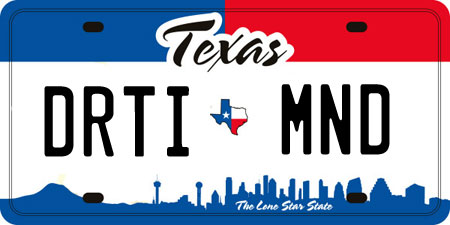“Predatory?” Let’s talk college loans.
What I’m about to share with you is true. I’m changing all of the names but the facts are real.
Let’s call the main character “Jack.”
Jack is set to graduate from a major private university in May. Jack’s mother and father are split and neither of them is of means. It is doubtful that Jack’s mother has even the wherewithal to get from where she lives to see Jack’s graduation. Jack is, for practical purposes, alone in the world.
Yet Jack, with the help of the financial aid office of his very well-known university, has been able to borrow enormous amounts of money to afford private university tuition and the sociology degree he will receive next month. The lender is the federal government.
Reality is starting to close in on Jack. He is beginning to realize that the employment prospects deriving from his degree are next to nil. Graduation is becoming a very frightening prospect to Jack.
Upon learning of Jack and his story, the question I asked was, “What in the world is he doing at Big Money U? Why did he go there?” And the simple answer is, ‘because Big Money U made it possible by encouraging and then facilitating irresponsible borrowing.’
Bank and mortgage company executives were called to testify before congressional committees for the “predatory lending ” (as it has been often characterized) that preceded the 2008 mortgage crisis. But if the pain and suffering attendant to the mortgage crisis was a case of “predatory lending,” then the practices attendant to student loans constitute nothing less than rapacious lending.
The proposition has always been that the cost of a college education is an investment that offers an excellent return in the form of higher lifetime earnings. But that was before the amount of money required for a college degree rose to the same level as that required to buy a decent house. It was before the time when any kid who could fog a mirror could borrow nearly limitless amounts of money with the help of the federal government. It was before the time that total student debt in the U.S. exceeded $1.1 trillion.
Saddling a 21-year old kid with what amounts to a mortgage before he or she has earned a dime in the real world is irresponsible. Compounding the felony by encouraging that young man or woman to pursue a squishy, socially-conscious, most likely left-leaning something-or-another-‘studies’ degree is absolutely cruel.
An ethical admissions counselor, rather than facilitate Jack’s plunge into unpayable debt, would have directed Jack toward a less expensive school or, at the very minimum, encouraged him to pursue a degree with stronger job prospects. That he or she did neither is a case of academic malpractice.
The most unscrupulous, most “predatory” mortgage lender imaginable could not be worse than the elite university admissions adviser who, caring nothing for what happens to Jack later, used him as a means to fill the university’s coffers with federal money.
When will we see that individual testifying before a congressional committee?









You said, “used him as a means to fill the university’s coffers with federal money”.
What you didn’t say is that the money from the federal government allows the universities to irresponsibly raise tuition rates. After all, those kids can easily get more. In addition, it is so easy to get the money, you have people in college who would never even think about attending if they had to have some amount of skin in the game.
The basic truism is = If the feds touch it, it breaks.
There are many ways that the “Progressive?” Left-wing Demorats can enslave even the non-welfare generations (already enslaved) and that is by enlisting students that are sold unrelenting DEBT to the Feds by the Left-wing academic institutions that are infested with Marxists. How better to fund the main source of Marxist dogma (higher education?) that threatens this country by teaching hatred of our magnificent heritage and Rule-of-Law and Creator Endowed Rights (the Constitution) than Federally funded, outrageous educational costs that are immune from free market forces?
Most of the big name universities are the breeding grounds of this anti-American, BIG Government, Marxist agenda that is slowly destroying our prospects for the continuation of the American Dream. Students that have been living off of government loans are unable to find decent work and will lose faith in being self sufficient and will continue to depend on government welfare, but this time with a degree. How sad!
What is worse is that the current open borders government policies and green card promotions make job prospects impossible due to the huge influx of foreigners that will work for far less salaries. The crony Capitalists that have partnered with the Washington elite have no loyalty to these new American graduates because they have bought government favors and supported anti-American policies that ignore our own citizens. Until we eradicate the Marxist vermin in our government and educational institutions and return to the America-first, Constitutional rule-of-law, and free market Universities unfunded by Marxist government policies, this will continue. This destruction of our educational and business institutions is not an accident. It is deliberate!
I glad to see someone pointing out this truth..Collegeare rip off kids.
What you are saying, Paul, is wholly on target and a sad commentary on what passes for higher education. In a time before the government screwed all this up with its faux generosity, I attended college (a state university here in Texas). Like the young man you described, my parents were divorced and contributed nothing to my college costs. I worked part time, and because tuition was back then reasonable (before government inflated the costs), I graduated with zero debt and went straight into gainful employment. Having no school debt, I soon bought a new car, and then a duplex (lived one side, rented out the other). In short, I was a plus for our economy, not a sad, hapless drag on it.
There are two problems here, the first being the student loan loads themselves, and the second, as you point out, being students taking useless degrees.
I have a friend whose daughter got a degree in harp playing (I kid you not) at the University of Texas, and on graduation was shocked to discover no demand for professional harp players. She then returned to UT and got a degree in architecture and quickly found a real job.
The advice to any student should be, yes, seek a profession that is right for you, but be sure it is also one society will pay you to do.
Guess what…my parents would not give me money to go to College, so I went to get a student loan. The paperwork was so thick that I said ” Let me try to use this huge amount of time to fill this out to work”. So I got a McD job & another same type of job, & another.
The University I went to had a plan that split the tuition into 3 parts.
I worked my head off & took any extra hours; carried changes of clothes along to go from job to job, slept in libraries….VOILA.
I did it. Me!
No help.
Now my parents could afford it. Both were college Grads 4 year..
But when I walked across that stage I did it.
I got all A’s & B’s ..1 C ; plus have a Masters from a big university.
It IS possible. It is hard work. I never was off any weekends in 7 years. I am not dead .
BUT .
It can be done if you have the dedication & keep your mind on the prize.
Without a crystal ball no one can tell if you will find a job.
Better get a truckers license & quit your whining.
You’ll be just a far along & maybe learn who you really are.
Good for you, P. Lewis!
Yours is an example the current generation of college students – all of us, in fact – should consider worth following. Unfortunately – quite literally – most college students of today were “gifted” with too much as children and teenagers, so they have come to expect still more handouts or “easy” money wherever they find it. So, you see, we parents and grandparents have participated in the deception, the “spoilage” that either already enslaves them, or will soon.
My Grandmother tried to instill the pay as you go plan when I was growing up. If you can’t pay for it, save up until you can. But along came plastic charge cards that changed everything. You just charge it and go. When that final bill arrives in the mail, you panic because you way over spent what you made. It was a conditioning process that has made this an easy sell and why college loans swallow up a lot of people. When they get out and DO get a job if they are lucky, it takes YEARS to repay those loans. Just like people paying the min balance on credit cards. They do not see the monthly fees add up and soon they are way in over their heads. We would be better off as a whole if we went back to the pay as you go instead of charging everything, but the way society has “progressed” over the years, that is only a distant memory. Too bad because it would sure take a huge bite out of the liberal agenda!